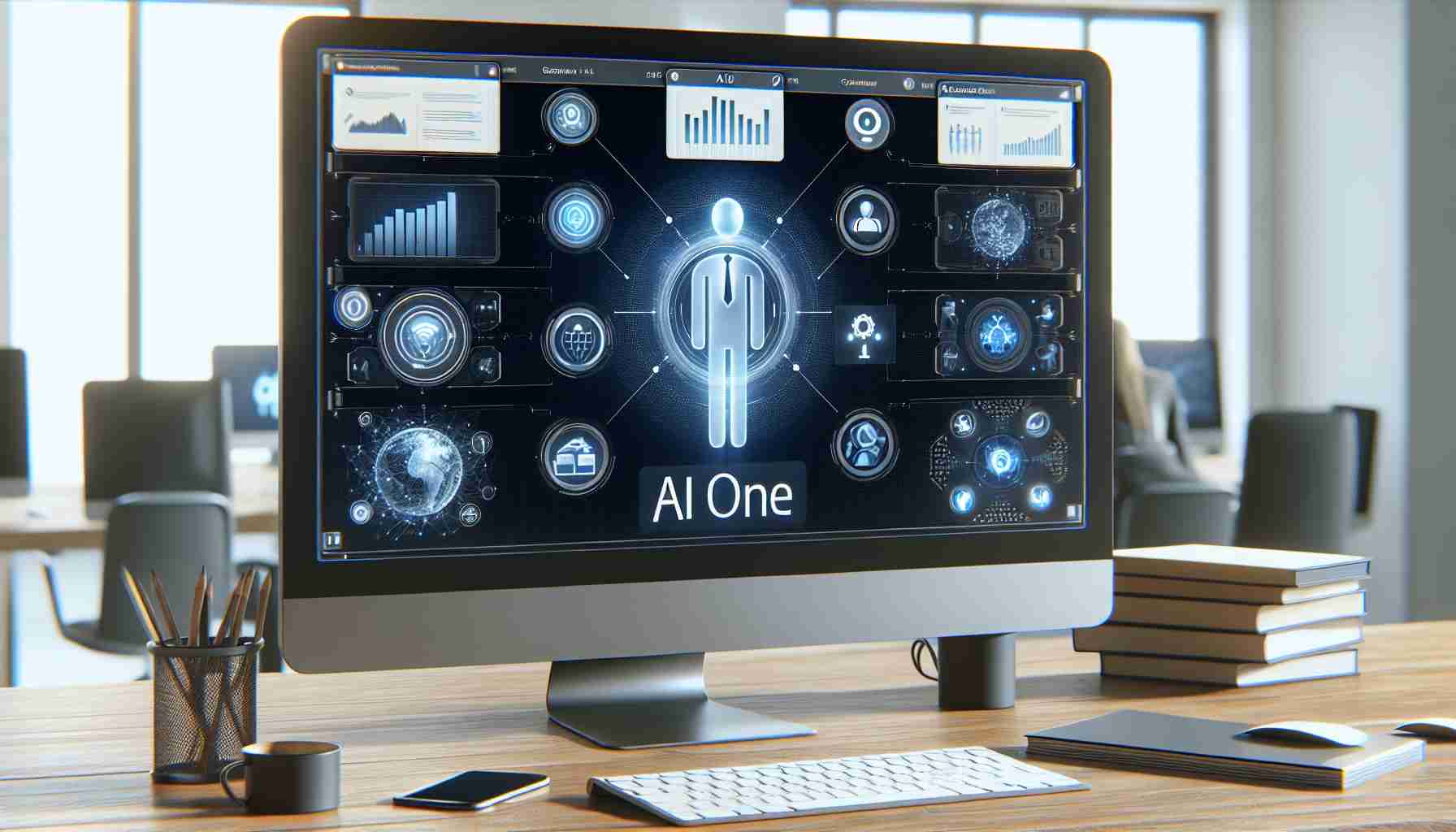On the 24th, Shinhan Bank announced the implementation of a new AI assistant platform named ‘AI ONE’, designed to enhance employee productivity through advanced artificial intelligence technologies. The name ‘AI ONE’ symbolizes the ambition to open a new era for branch operations by integrating various AI services into a cohesive tool.
This innovative platform evolves from an existing operational support system called ‘A.I. Molly’, integrating features such as AI-STUDIO and AI-OCR to provide seamless access to multiple AI functionalities in one location. With the introduction of voice recognition for task management via smartphones and tablets, the platform significantly improves accessibility for staff.
Employees can leverage ‘AI ONE’ for over forty different functionalities, including searching for work-related knowledge, analyzing key market indicators, creating marketing target lists, and managing the tedious paperwork involved in loan processing. Shinhan Bank anticipates that individual employees can save more than thirty minutes of work time daily through the use of this platform.
The bank aims to further enhance automation in the workflow, targeting an 80% automation rate from customer consultation to completion of processes. A representative from Shinhan Bank emphasized that the goal of developing the ‘AI ONE’ platform was to create an environment where employees can focus more on customer engagement, with plans to continually evolve AI technology for improved customer experiences.
Shinhan Bank Unveils ‘AI ONE’: An AI-Driven Effort to Boost Employee Efficiency and Customer Engagement
On October 24, Shinhan Bank made headlines with the launch of its groundbreaking AI-driven platform, ‘AI ONE’. This initiative is aimed at improving employee efficiency and redefining how bank personnel interact with customers and manage workloads. By integrating various artificial intelligence technologies into one cohesive platform, Shinhan Bank is prepared to reshape its operational landscape significantly.
The Genesis of ‘AI ONE’
‘AI ONE’ evolves from the bank’s prior operational support system known as ‘A.I. Molly’. However, unlike its predecessor, ‘AI ONE’ provides an extensive suite of tools designed for the modern banking environment. Building on capabilities such as AI-STUDIO and AI-OCR, it offers employees a single point of access for various AI functionalities. This means staff members can navigate through complex data and tasks more efficiently, which is paramount in today’s fast-paced financial sector.
Q&A: Key Questions Regarding ‘AI ONE’
1. What functionalities does ‘AI ONE’ offer?
– Beyond the previously mentioned capabilities, ‘AI ONE’ includes advanced analytics tools for monitoring customer behavior and predictive models to forecast market trends, enabling employees to make informed decisions.
2. How does voice recognition contribute to employee productivity?
– The introduction of voice recognition allows employees to issue commands and manage tasks hands-free, facilitating multitasking and reducing mental strain.
3. What is the expected impact on customer satisfaction?
– By streamlining processes and enabling more direct and personal customer interactions, Shinhan Bank anticipates improved overall customer satisfaction ratings.
Challenges and Controversies
The implementation of ‘AI ONE’ is not without its challenges. Key concerns include:
– Data Security Risks: As with any AI-driven platform, safeguarding sensitive customer data against breaches is a pivotal concern that the bank must address continuously.
– Employee Adaptation: There may be resistance from employees who feel threatened by AI integration, fearing that automation could threaten job security.
– AI Bias: Ensuring that the algorithms used in ‘AI ONE’ are free from biases that could affect customer service or analytics outcomes is crucial for maintaining trust and effectiveness.
Advantages and Disadvantages
Advantages:
– Enhanced employee productivity through automation of routine tasks.
– Improved customer engagement due to an increase in time available for personalized service.
– Greater insights into customer preferences, driving more effective marketing strategies.
Disadvantages:
– High initial investment costs for implementation and training.
– Potential job displacement concerns among staff.
– Dependence on technology which may lead to reduced human interaction, impacting customer relationships negatively.
Future Outlook
As Shinhan Bank continues to evolve its AI technologies within ‘AI ONE’, the banking sector may see stronger shifts towards automation and AI integration. This could set a precedent for other financial institutions to follow suit, sparking a broader transformation across the industry.
For further information on Shinhan Bank and its initiatives, visit their official website: Shinhan Bank.


















